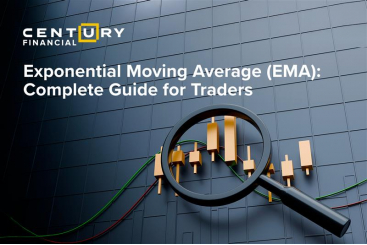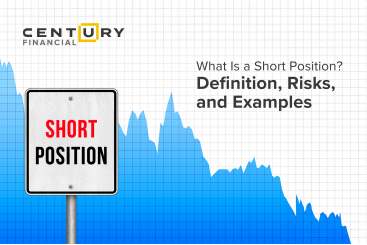Tuesday, January 24, 2023
Institutional vs. Retail Investors – What’s the Difference?
تم إعداد هذا المنشور من قبل سنشري للاستشارات

.jpg)
In the fast-paced world of finance, trillions of dollars move around from one market (or stock) to another every day. This continuous movement of money is what drives the economy, impacting companies, countries and individuals.
But who is driving this flow of capital in the financial markets? Well, the answer is investors, of course.
The world of investing attracts all types of investors for varied reasons. The two major types of investors are retail investors and institutional investors. Let’s learn more about them.
Retail Investors
Individuals who invest their own money in the financial markets for the sake of profit are considered retail investors. They are not professionals and tend to trade smaller volumes of stocks and other asset classes like commodities and ETFs on their personal account. Here are some of the types of retail investors:


Institutional Investors
Institutional investors are entities that invest on behalf of others (more often other companies ). They allocate capital according to the goals of the company or organization they represent. A few of the most widely known types of institutional investors include:

As big daddies of the stock market, they have tremendous influence on the movement of the stock market. They are sophisticated investors with in-depth knowledge about various opportunities in the market. They conduct extensive research and have more expertise.
.jpg)
The main difference…
Key differences between retail and institutional investors include:





| Institutional Investor | Retail Investor | |
|
Funds |
||
| A huge chunk of money belongs to companies and organizations for who it represents | Limited to an investors’ own money | |
|
Potential Trading Impact |
By taking large positions and making frequent transactions, sudden price movements can move an entire market in unexpected directions | Mostly smaller trade sizes, having little impact on the entire market |
|
Emotional Trading |
Experienced traders with knowledge and expertise about the market. They also have instant access to feedback and professional advice | Lack of investment education and are more likely to follow trends and price movements. |
|
Transaction Type/Size Example |
Block trades of 10,000 shares or more | Round lots of 100 shares or more |
|
Protective Regulations |
Subject to less protective regulation owing to investment expertise | Subject to more protective regulation owing to perceived lack of experience and education |
|
Limits |
Tend to transact large volumes and make sizeable investments | Most likely to invest in stocks of companies with lower share prices |
|
Information Advantage |
Access to extensive market research and minute-to-minute timely market insights feedback | Less access compared to the information specifically reserved for institutional investors Have better access to reliable information than they did before but are prone to biases |
Impact of Institutional Investors
So, how influential are institutional investors? Well, as mentioned earlier, their influence is based on their size and wealth. As a result, they have the capacity to purchase shares or commodities in massive quantities, significantly dictating market sentiment and impacting price movements.
If you invest in stocks, a smart strategy would be to observe the actions of noted institutional investors to understand the rationale behind their investment decisions, and to do your own due diligence and research.
Getting Started as a Retail Investor
No matter how inexperienced you feel, you can start trading a range of financial assets through trading software or online trading platforms. Today, there are tools and indicators that provide in-depth insights, analysis as to how the markets will move or even which stocks to choose. If you wish to learn about trading and where to invest in stocks, take the help of a consultant.
لا تقدم شركة سنشري للإستشارات والتحليل المالي ش.ذ.م.م (الشركة) محتوى هذه المدونة، بما في ذلك أي أبحاث أو تحليلات أو آراء أو توقعات أو أي معلومات أخرى (يُشار إليها مجتمعةً باسم "المعلومات")، إلا لأغراض التسويق والتثقيف وإتاحة المعلومات العامة. ولا يُفسَّر ذلك على أنه نصيحة استثمارية أو توصية أو دعوة لشراء أو بيع أي أدوات مالية.
كما يجوز نشر هذه المعلومات عبر قنوات مختلفة، بما في ذلك موقع الشركة الإلكتروني، ومنصات الغير، والنشرات الإخبارية، والمواد التسويقية، ورسائل البريد الإلكتروني، ووسائل التواصل الاجتماعي، وتطبيقات المراسلة، والندوات الإلكترونية، وغيرها من وسائل التواصل. وبينما تسعى الشركة لضمان دقة المحتوى، فإنها لا تضمن اكتماله أو موثوقيته أو تحديثه في الوقت المناسب. وعليه، فأي قرارات تُتخذ بناءً على هذه المعلومات تكون على مسؤوليتك الشخصية. ولا تتحمل الشركة أي مسؤولية عن أي خسارة أو ضرر ناتج عن استخدامها.
ينطوي تداول المنتجات المالية على مخاطر كبيرة، بما لا يتناسب مع جميع المستثمرين. فيُرجى التأكد من وعيك التام بالمخاطر، وطلب الاستشارة المهنية المتخصصة إذا لزم الأمر.
يُرجى الاطلاع على بيان كشف المخاطر الشامل المتوفر على موقعنا الإلكتروني.




__1439480927.jpg)











